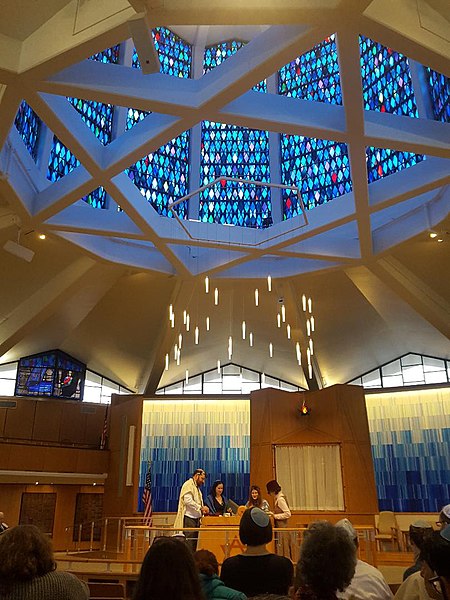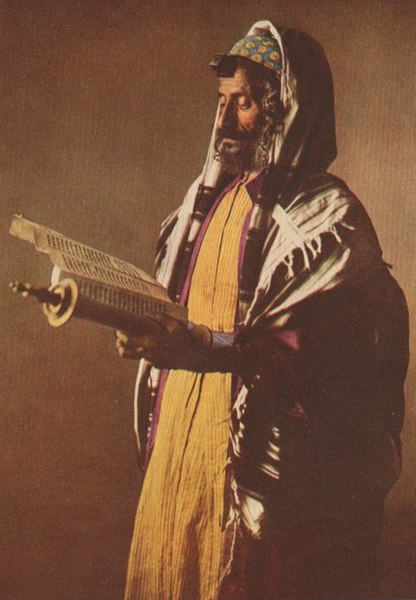Conservative Judaism is a Jewish religious movement that regards the authority of Jewish law and tradition as emanating primarily from the assent of the people through the generations, more than from divine revelation. It therefore views Jewish law, or Halakha, as both binding and subject to historical development. The conservative rabbinate employs modern historical-critical research, rather than only traditional methods and sources, and lends great weight to its constituency, when determining its stance on matters of practice. The movement considers its approach as the authentic and most appropriate continuation of Halakhic discourse, maintaining both fealty to received forms and flexibility in their interpretation. It also eschews strict theological definitions, lacking a consensus in matters of faith and allowing great pluralism.
Morning service in synagogue Adath Israel, Merion Station, Pennsylvania
The Jewish Theological Seminary of America in New York City, the main rabbinical seminary of Conservative Judaism
Memorial service of B'nai Israel Congregation (Rockville, Maryland)
A mixed-gender, egalitarian Conservative service at Robinson's Arch, Western Wall
Jewish religious movements
Jewish religious movements, sometimes called "denominations", include diverse groups within Judaism which have developed among Jews from ancient times. Today in the west, the most prominent divisions are between traditionalist Orthodox movements and modernist movements such as Reform Judaism originating in late 18th century Europe, Conservative originating in 19th century Europe, and other smaller ones, including the Reconstructionst and Renewal movements which emerged later in the 20th century in the United States.
In central Karaite synagogue, Ramla
Torah reading Sephardic custom
A Yemenite Jew in traditional vestments under the tallit gadol, reading from a Torah scroll
Italian siddur (סידור איטליני)








